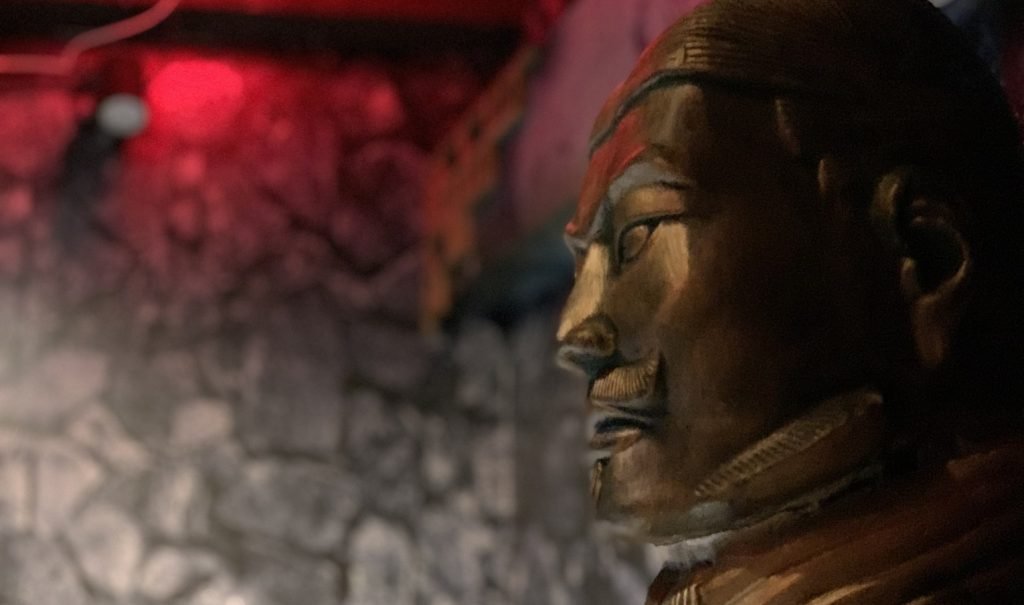Escape Room Features
I believe that most people in Taiwan will be pretty familiar with escape rooms, but do you know that there are many different game rooms all around the world, with many different characteristics. Now, I’m not talking about their theme, mechanisms or puzzles, but the way they give their clues and lifelines.
Verbal Clues
Some game rooms like to give players one or even a few portable walkie-talkies. When the appropriate channel is adjusted, you can directly talk to the front desk. When you encounter any problems during the escape process, you can press the button to communicate directly at any time. This method saves time by directly putting you through to the staff.
Action Prompts
I’ve been to some escape rooms where you have to face the camera and dance with all your teammates for about ten seconds. You need to use this method to inform the front desk staff that you need assistance, and then they will enter the room to assist you. In this way, I think the atmosphere is also very good, because when everyone has mental hiccups and lacks inspiration, they can jump together like crazy and get the blood flowing.

Personal Helper
There’s a term in Taiwan known as “Little Angels”, in which, they arrange some employees to enter the room with the player. During the entire escape process, which means they are “always with you” for 60 minutes or however long the game duration is. You can turn your head and ask questions every time you encounter a problem. I personally don’t like this method very much. I wanted to do the escape game with my friends and to solve the puzzles, trigger the mechanisms, find out the exit with our own group, so when a third party is present, it will make the situation a little awkward. For example, we are currently training in a company or a team and. If there are some “overly-enthusiastic” little angels who follow us, and provide the answer directly, then how do we gauge our teamwork? How to find out the strengths and weaknesses between the teams? If there is a sweet couple playing then then it might be a bit embarrassing to ask questions or be around an extra person in the room. It might be a culture difference, but the locals in Taiwan love this type of service and is very well received.
Unless this is a child or parent-child catered experience, I feel that it is unnecessary to arrange for personal helpers to enter the room unless absolutely necessary or at least give the players multiple options in how they want to receive their lifelines. The most important thing is to let the players have fun because that is the real essence of an escape game experience.
For more tips on Team Building, please see the Team-building Do’s and Don’ts!
小天使的作用(密室逃脫篇)
密室逃脫的特色
在台灣,對於密室逃脫我相信大部份人一般都不會陌生,可是你又會否知道全世界各地都有很多不同的密室逃脫,當中有很多不同的特色,我說的並不是他們的主題、機關、謎題,反而是他們的提示表達方式。
語言提示
一些密室逃脫喜歡給玩家一台甚至幾台手提對講機,調校好適當的頻道的時候就可以直接和前台對話,當你在逃脫過程當中遇上什麼難題可以隨時按下按鈕直接溝通,這樣的做法比較直接省卻了一些時間。
動作提示
一些密室,當你遇上難題的時候,你要對着鏡頭(即閉路電視)聯同所有隊友一起跳舞,需要維持大約十秒時間,要利用這種方式通知前台職員你需要協助,然後他們會進入房間給你協助。這樣我覺得氣氛也很好,因為大家都腦閉塞欠缺靈感的時候,可以一起瘋狂跳一番,感覺不錯。

真人提示
在台灣有些說法是小天使,就是安排一些員工跟着玩家一起進入房間,在整個逃脫過程當中例如六十分鐘「常伴你左右」,你每次遇到疑難的時候轉個頭就可以直接提問。我個人對於這種方式並不是很接受,一則我是來跟朋友們一起挑戰密室逃脫,解謎題、動機關、找出口,所以當有第三者在場反而會令到我們顯得尷尷尬尬。二則我們是一個團隊合作精神,例如我們正在進行公司企業培訓,或團隊訓練,若然有一些「過分熱情」的小天使,看着我們卡關又看不過眼然後提供答案直接了當,那麼我們怎樣鍛鍊團隊合作?又如何找出隊伍之間的長與短?!三則有一些男生比較愛逞英雄,若然那些小天使是一位女生,那麼男性玩家又會覺得面紅耳熱,遇着難題又不好意思問,問了又不好意思,直到小天使解釋又會覺得場面尷尬,怎麼這麼淺白的謎題我竟然解不通想不透。
除非這是一個小朋友或者是親子導賞活動,所以如非必要我也覺得無謂安排一些小天使進入房間,一來可以省卻以上的麻煩,二來可以減輕成本,最重要的是讓玩家玩個痛快,這才是真人實景密室逃脫的體驗。
如欲了解更多有Team Building 的技巧,可瀏覽「人力資源管理(HR)必看天書」


